Three sisters that always put Jessica's needs first
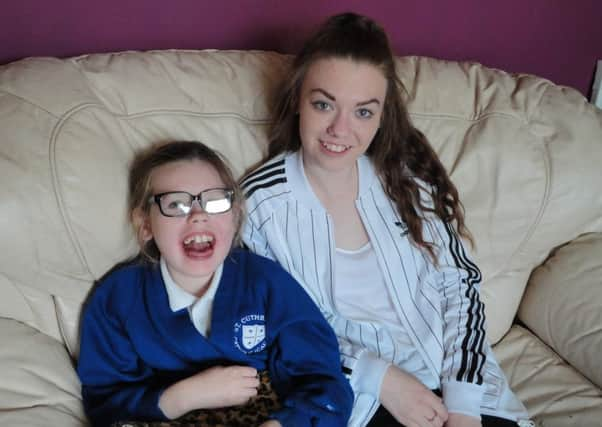

I don’t ‘speak Jessica’. It takes about half an hour to attune to the little girl’s speech pattern. But there’s no ignoring the insistence involved. As I make to leave the sofa we’re sharing - Jessica playing a computer game as I watch on - she pulls me back to her side.
The words suddenly become clear. “Talk to me. To ME.”
The simple statement, now deciphered, catches at the heart. It’s the ‘does she take sugar?’ syndrome. I’ve sat and talked to Sam Smith, Jessica’s mum, and each of her sisters Emily, 11, Olivia, eight, Caitlin, 14, and her dad Colin too. But not Jessica, not properly, and she knows it.
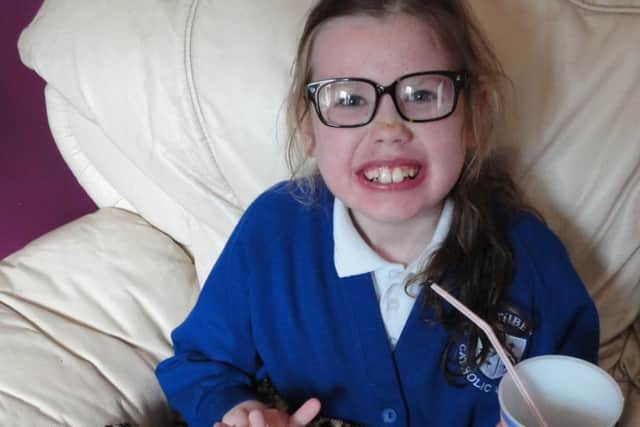

Advertisement
Hide AdAdvertisement
Hide Ad“Talk to me.” So I do. Or try to. And she suddenly turns shy. A typical 10 year old faced with a visiting adult’s undivided attention. And in truth she’s more interested in the computer game but, as Sam tells me, “Jessica like to have company - and she’s very demanding.”
Life revolves around Jessica in the Smith household in South Shore. She has Crohn’s Disease and other complex needs. Her three sisters, mum and dad, share the additional caring responsibilities. They are registered with Blackpool Carers Centre and speak highly of the parent carers project - and the youth club too, the one which is part funded by BBC’s Children in Need.
It makes BBC DIY SOS the talk of the household, with the top TV crew moving into town today for a trades day on site with volunteer trades ahead of the proposed transformation later this month, with the Big Reveal to come early July,but the programme to feature what really happens behind the scenes on the screen, for Children in Need, on November 18.
The team, led by build manager Mick Millar, with the talent up front, Nick Knowles, and flamboyant designer Laurence Llewelyn Bowen adding his magic, are utterly committed to creating a young carers centre of which Blackpool, and Britain, can be proud. It’s a game changer for the small independent charity Blackpool Carers Centre which helps 4000 carers in the resort, 500 of them young carers.
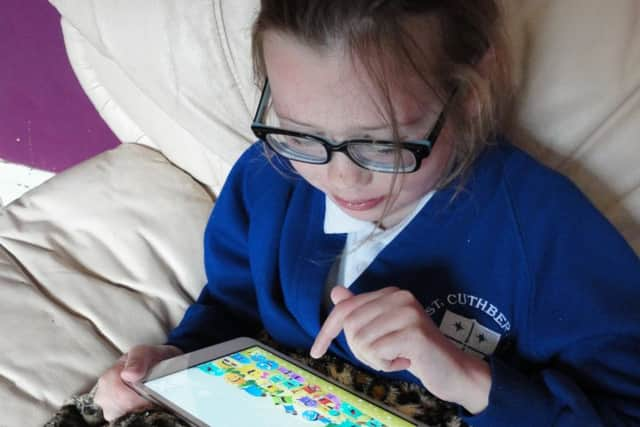

Advertisement
Hide AdAdvertisement
Hide AdCaitlin is one such. She admits it can be ‘tough at times’ and she would love more support but she enjoys being a carer even if she never called herself that before she got involved in the charity. “I’m doing what any big sister would,” she says. The same goes for the two younger sisters, but Olivia, eight, is particularly keen to return to the carers charity’s craft sessions, which involved parents, carers and cared for, sitting and chatting and socialising and playing side by side through the charity’s Hand in Hand group.
Sam admits Jessica had the first decent night’s sleep - without the aid of medication - since taking part in a craft session there. The whole family relaxed, too. Jessica has been on meds to help her sleep since she was four. Parents regularly found her sat upright in bed, in the dead of night, drawing or playing. The little girl, with the engaging grin, was worn out and fractious by day.
“If Jessica has a good day the rest of us do, too. You only know what it’s like if you’re in this kind of situation yourself.
“Because Jessica’s disabilities are hidden people just see a happy little girl with a big smile and assume all is well,” adds Sam.
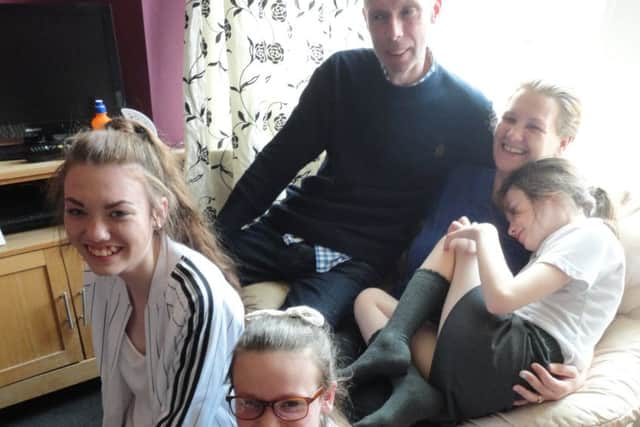

Advertisement
Hide AdAdvertisement
Hide Ad“That’s how we prefer it. But we really need help in knowing what the future holds and what support is available. We need to be kept informed.”
Sam’s had her share of problems. In truth, as she admits, the kids are ‘dual carers’. She has epilepsy, which became horribly pronounced, and then diagnosed, at about the time she was studying to “change the world by becoming a youth worker”. Once diagnosed driving was out and other things beside.
“It’s under control of medication but Colin and the girls look out for me too. Meds aren’t infallible. Nothing is. But I think that desire to make a difference drives me now - it makes me more proactive as a parent. If there’s a problem I’ll just look for a solution.”
Their delight at the BBC’s intervention in the ‘Nick’ of time for the carers’ centre is evident. “It will make a huge difference,” says Sam. Caitlin’s hoping for a big name to open the new-look carers centre on Newton Drive for BBC Children in Need’s Big Build. “It would be great if they got someone who either is a young carer or has been a young carer, someone who knows what it’s like,” adds Caitlin.
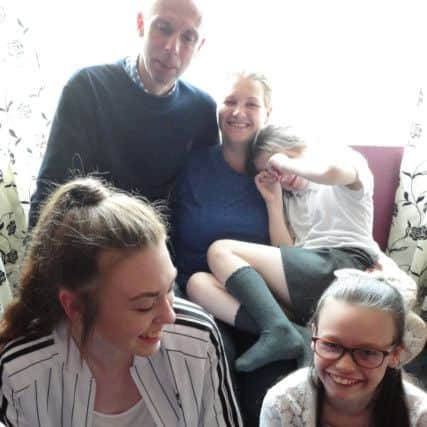

Advertisement
Hide AdAdvertisement
Hide Ad“Someone like Oritse (Williams) from JLS would be good. He’s talked of having been a carer himself.”
Jessica demurs. “Olly Murs,” she declares. “I love him.”
The two older girls both attend carers’ youth club - another project supported by Children in Need.
Caitlin adds: “I also went on a residential. It was good. I was with people in the same situation so they could understand what I’m going through. I have friends who support me too.”
“We’re a unit,” adds Colin. “That pulls us through time and again.”
Advertisement
Hide AdAdvertisement
Hide AdSam adds: “We don’t obsess about things if something has to be cancelled because Jessica’s having a meltdown or something else has happened. We just regroup for another day. This our normal.”
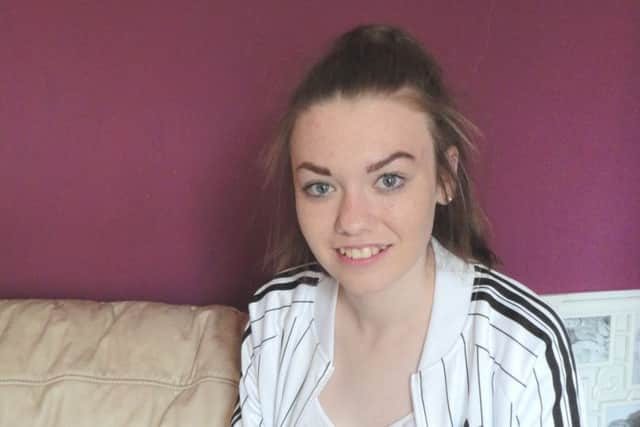

It’s made Caitlin keen to have a career as a special educational learning needs teacher,
“I don’t think most people know about young carers, not really,” she adds. “Hopefully the DIY SOS programme for Children in Need will make a big difference because it will be seen right across the country.”
Sam agrees. “I think we would find it very hard to cope, as parents, without the girls’ help. They don’t think twice about putting Jessica first. They’re all very close. They help make everything easier and they give Jessica normality - because they’re sisters, first and foremost. They don’t see themselves as carers.”
Lead young carers worker Faye Atherton agrees.
Advertisement
Hide AdAdvertisement
Hide Ad“You will find that young carers are incredibly thoughtful and sensitive to the needs of others but seldom their own – it’s a privilege to get to know them and their stories and help in any we can. They are incredibly resilient and a great asset – but a hidden one, by and large.
“A lot goes under the radar. My favourite part of the project is youth club. I see young people in a really positive environment rather than with the weight of the world on their shoulders.
“Some don’t want school to know, don’t have friends who understand. A lot of it is underground so we go into schools and promote what we do.”
One school which has embraced the charity’s support - and the ethos - is St George’s, a Church of England Academy at Cherry Tree Road, Marton,
Advertisement
Hide AdAdvertisement
Hide AdLynne Ridgway, school nurse practitioner, based at the school for seven years, works closely with Audrey Ainsworth, pastoral manager at St George’s, and college heads on the pastoral team.
“The hardest thing is young carers don’t always want to tell you,” says Lynne. “They want home and school separate
“For them it’s the norm. They don’t realise they’re carers. That’s why we have carer assemblies, speakers from the charity, to encourage them to come forward. It’s a fantastic service and makes a real difference.”
Audrey adds: “Attending a carers conference opened our eyes. It made us realise how much work young carers do at home. It was a defining and humbling moment.
Advertisement
Hide AdAdvertisement
Hide Ad“But if you don’t ask the right questions you may never know. You need to see the wider picture. They may be late, tired or inattentive, or not staying after school for a reason. They’re not being awkward. And they do need support. The great thing is the charity has never said no to us - and is there for them.”